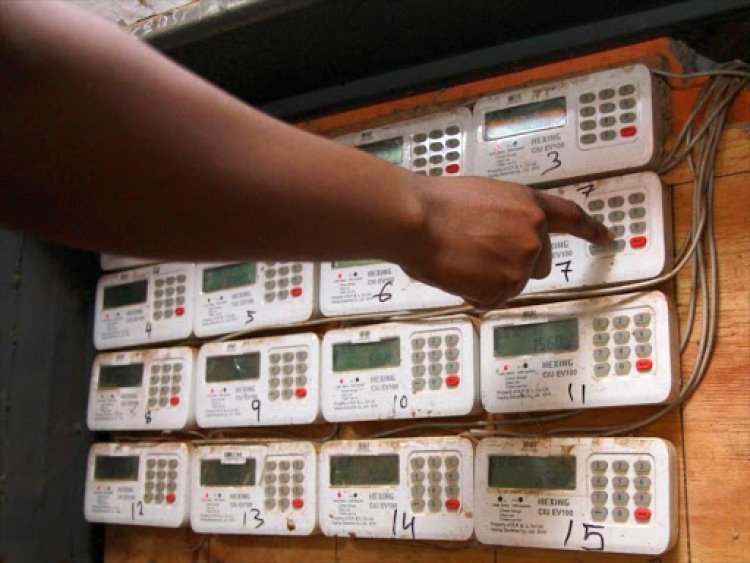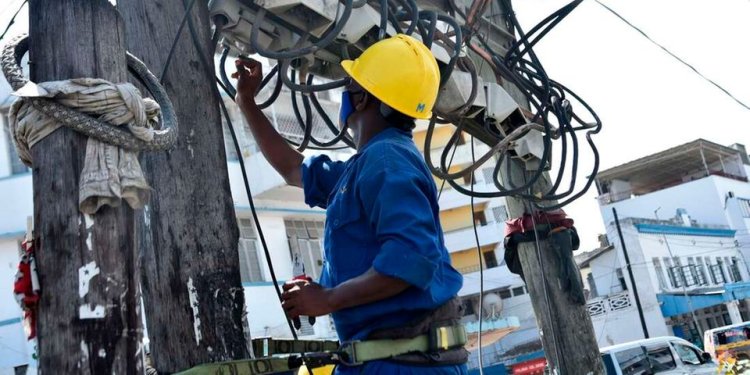How Azimio EALA MP Benefited From High Cost Of Electricity
Shahbal, who is also a businessman based in Mombasa and elected to EALA via the Azimio la Umoja ticket, was revealed to be a co-director with Francis Koome Njogu.

East African Legislative Assembly (EALA) Member of Parliament Suleiman Shahbal was on Thursday, August 10 revealed as a beneficiary of the high cost of electricity in the country.
According to Business Registration Services (BRS) Director General Kenneth Gathuma who appeared before the National Assembly Energy Committee, Shahbal was among the directors, shareholders and beneficiaries of the Independent Power Producers (IPPs) who were pushed by the committee to revise their prices downwards.
The IPPs, who declined to oblige to the demands, sell a kilowatt unit of power to Kenya Power five times higher than the supply from KenGen.
To be specific, the IPPs are revealed to be currently selling a kilowatt unit of power to the power transmission company at Ksh25 per unit, five times compared to what KenGen is selling the same unit at.

Businessman Suleiman Shahbal during a press conference in Mombasa on September 18, 2020. /THE STAR
Gathuma had told the MPs that companies were exploiting a loophole which only required companies registered after 2017 to provide evidence of the registration status to keep the shareholders' identities unknown.
He further uncovered how the directors, shareholders and beneficiaries of these companies were making use of the loophole in the law to remain faceless and continue imposing high costs of electricity on Kenyans.
Shahbal, who is also a businessman based in Mombasa and elected to EALA via the Azimio la Umoja ticket, was revealed to be a co-director with Francis Koome Njogu, among the local prominent personalities unmasked as beneficiaries or directors of the IPPs.
Other local directors working with foreigners in reaping huge benefits from high power costs include Christopher Mugo Kibati, and Keneth Ndegwa Kamaitha, who partnered with two Israeli nationals and one American in the power business. Others are George Kagunyi Njenga, Kenneth Namunje Onyango and Simon Guyo Mwacharo among others.
The IPPs include Lake Turkana Wind Power Limited, Iber Africa Power (EA) Limited, Orpower 4inc, Kipeto Energy Plc, Tsavo Power Company Limited, Rabai Power Limited and Thika Power Limited. Others include Gulf Power Limited, Vestas East Africa Limited, Triumph Power Generating Company Limited, Noora Power Limited, and Industrial Promotion Services (Kenya) Limited.
Some of the companies however have foreign directors and shareholders whose details remain unknown.
The committee now wants Attorney General Justin Muturi to step in and write to the foreign countries, asking for details of the faceless beneficiaries who are nationals from Israel, Denmark, Spain, South Africa, Nigeria, the United States of America (USA), Norway and the United Kingdom (UK).
This comes more than a year since the government began talks with IPPs to renegotiate the power purchasing agreement entered between them and Kenya Power with a bid to lower the cost of power.
Little, if any, progress seemed to have been made, with the IPPs now demanding that the government removes all taxes on HF4 oil used by the companies if they have to review the prices downwards.
The developments came in the wake of reports that Kenya Power had been inflating electricity bills causing consumers to be overcharged by 20%, with Auditor-General Nancy Gathungu reported to have told a parliamentary committee that a forensic examination of the production, transmission, and distribution of energy, revealed that invoices do not correspond to real use, and additional fees imposed on customers by the utility are not identifiable in the billing system.
Kenya Power on Tuesday, August 8 refuted the reports saying they are non-factual and are geared towards building a false narrative around the cost of electricity.
“Part of power system losses are inevitable during transmission and distribution of power; therefore, the regulator sets a threshold for the allowable system losses that is factored in the tariff. In the current financial year, the regulator has allowed system losses up to a maximum of 18.5%. Kenya Power meets the cost of system losses incurred above what is allowed,” stated the utility firm in part.
In their defence, the company stated that it operates in a regulated environment that adheres to the Energy Act of 2019 and that all charges in electricity bills are approved by the Energy and Petroleum Regulatory Authority (EPRA), further claiming that all electricity bills are computed based on customer consumption which is the difference between current meter reading and previous meter reading.
Kenya Power purchases electricity from 58 power suppliers, including KenGen, IPPS, REREC, and imports, through 100 distribution points, with each of them containing main and backup meters, as specified in the relevant power purchase agreement.







